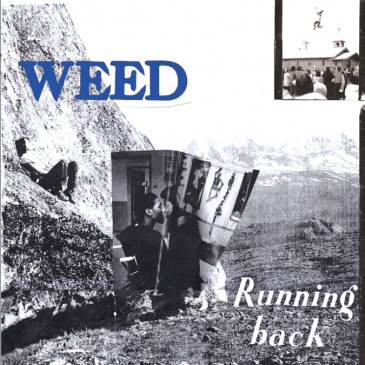
It’s taken Weed one phenomenal 7” single, an EP, and a long-play (2013’s Deserve) to seemingly wrap up their experiments in no-fi production, or at least shift that fidelity into the realm of discernibility.
On Running Back, Weed’s sophomore album, frenetic drum hits are — for the first time in the band’s history — audible beyond a white-wash of cymbal hits, and equally surprising is how relatively far forward singer Will Anderson’s trademark croon is in the mix. More than ever does Running Back see Weed falling further in love with shoegaze — and though this record isn’t a rock-fueled version of Loveless, it’s not far off.
In many ways, Running Back is a naturally more mature version of Weed’s previous releases. After struggling to retain the perfectly shit-fi recording quality the band captured on With Drug/Eighty, it’s refreshing to hear songs that aren’t chasing that particular rabbit any longer.
Guitars are just as, if not more, Big Muffed than usual, but this time punch through in all the right spots instead of being swallowed up by the rest of the mix. In part, this means the tenaciousness that so many fans found solace in is somewhat lacking throughout the ten songs that make up the LP — it’s a less abrasive album and suffers less from the reckless youthfulness that plagued Deserve and Gun Control (2012), but this maturity comes at the cost of some of the intensity and sense of wild abandon that those records shared.
Running Back is a solid and strong progression of the core ideas that Weed has explored over the last four years, even if it suffers slightly from a restrained energy. Most importantly, perhaps, it answers a question that has plagued music nerds since hearing the amazing With Drug/Eighty split that the band put out after first solidifying its lineup: just how long can four people pour blood, sweat, and tears into their records before they’re forced to reign things back? The reigns here make for a slightly less chaotic and brash Weed experience, but Running Back is as solid a sophomore album as listeners could have expected.

